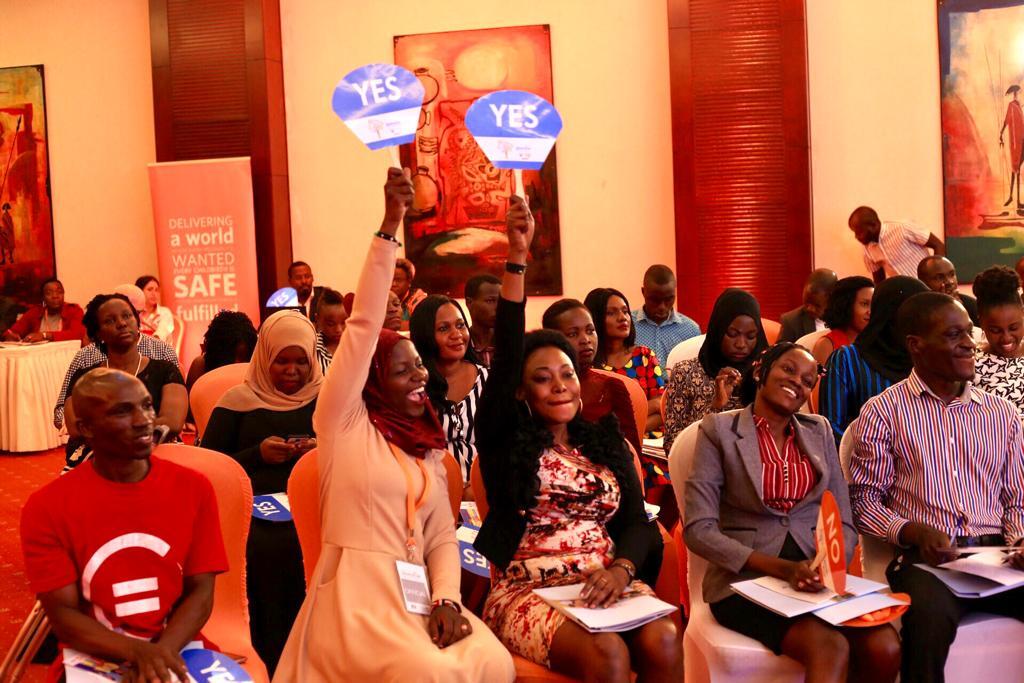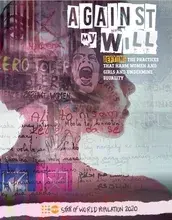“How do we ensure that while women are facing reproductive responsibilities, they are not left behind in playing their role as game changers for socio-economic development?” Dr. Maxime Houinato, the UN Women Uganda Representative posed this question for reflection to those in attendance at UNFPA’s Generation for Generation dialogue on May 14.
The dialogue was the second in a series of dialogues organised by UNFPA and NTV Uganda as part of UNFPA’s ongoing Live Your Dream campaign. Generation for Generation dialogues are meant to bring together generations; the young, middle aged and elderly as well as academics and decision-makers to engage in conversations to generate policy recommendations on socio-economic issues.
The event, held at the Serena Conference Centre in Kampala, brought together about 160 participants including young people, representatives of civil society, development partners and the private sector at to exchange views on the theme Uganda’s women as game changers for socio - economic development.
Dr. Houinato delivered the key note address in which he highlighted progress made by Ugandan women in socio-economic terms as well as highlighting challenges that include limited participation by women in leadership positions and in the political arena, unfair proportion of unpaid labour and limited ownership of and access to resources. “Key investments in key sectors like education, agriculture, ICT and trade must be made if their full potential is to be realised. Government and development partners must set aside funds and develop programmes that will deliberately target women,” he noted, outlining some of the measures need to address these challenges.

the panel discussion.
The key note address was followed by a panel discussion by speakers from a range of background including politics, entrepreneurship and reproductive health, representing three generations. These were Dora Byamukama a former Member of Parliament and sexual and reproductive health and rights advocate; Evelyn Zalwango Managing Director of Awaka Furniture; Ricky Rapa Thomas, co-founder Safe Boda; Michelle Omamteker Director and co-founder of Malengo Foundation and Nataliey Bitature and entrepreneur.
Dora Byamukama kicked off the discussion by sharing her journey as a leader in a male- dominated field of elective politics. “What is your dream?” she challenged the audience. “For women leadership is about self-esteem, planning, organisation. You have to dream and you have to believe in that dream. You need to take action,” she added.
Nataliey Bitature stressed the critical role that parenting plays in shaping attitudes towards women and called for a shift in the narrative towards women’s rights; to ensure more support for women right from childhood to the work place and other public spaces. "I was raised in an environment where I was never told I was less. I was raised like my brothers, what they did I did and what they didn’t do, I didn’t. We need to remove the obstacles that stall the potential of women," she said
The audience could not agree more with the panelists and backed them up by voicing their own their contributions to the dialogue.
"I walked a mile in women's shoes to know what it's like. As men, sometimes we bury our heads in the sand and fail to realise the potential of women. How can we bring more men to become champions and role models for women empowerment, to speak to their fellow men?" said police officer and gender rights activist Francis Ongwen.
Subsequent speakers spoke of the need to get men to support women’s issues more visibly, and the need to take the conversations to more communities in both rural and urban areas. This approach, it was noted would help inspire even more young people especially those in rural areas by presenting them with role models they can relate to and who can encourage them to follow their dreams and make something of themselves.
Also in attendance at the event was the Dutch Ambassador to Uganda His Excellency Henk Jan Bakker and Ms. Maggie Kyomukama, Assistant Commissioner in the Ministry of Gender, Labour and Social Development who represented the Minister. On behalf of the Ministry of Gender she committed to integrate proposed solutions in the Ministry’s policy making processes.
UNFPA Representative Mr. Alain Sibenaler and NTV Managing Director Mr. Johnson Omolo wrapped up the dialogue: In his remarks Mr. Sibenaler thanked the panelists for sharing their “authentic and bold” stories. “You are my role models,” he said. Mr. Sibenaler also committed on behalf of UNFPA to ensure that similar conversations are taken to the rural areas and to continue supporting efforts to realise full rights of women, young people and other members of society. “UNFPA is your home it is the home to talk and to address difficult issues: Family planning, reproductive health, menstrual health. We will not stop until we have these rights…they are not only women’s rights, they are human rights,” he said.



